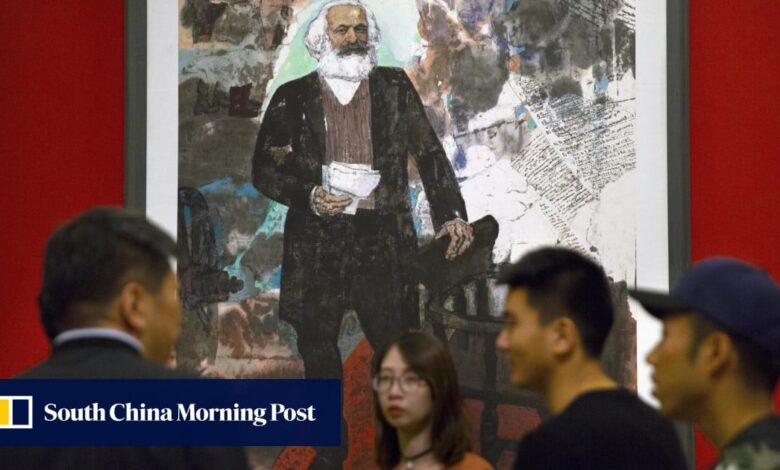Chinese scholars suggest official line between entrepreneurs, capitalists to jolt private-sector spirit

The term “capitalist” holds derogatory connotations in China, an officially socialist country whose constitution upholds public ownership as the “mainstay” of the economic hierarchy. While private property rights were enshrined in a 2004 amendment to the country’s founding document, the non-state sector has remained relegated to a supporting role.
In a recently published book, Views on China’s Private Economy, economists Teng Tai and Zhang Haibing argued that private business owners are not “capitalists” as originally theorised in the works of Karl Marx. Instead, they said, entrepreneurs are “enterprise managers, innovators, investors, the final risk bearers of enterprises and socialist builders”.
At a subsequent symposium held for the book’s release in mid-April, several economists and advisers agreed with the duo’s sentiments, calling for unleashing the “entrepreneurial spirit” that drove China’s economic boom without applying labels to those leading the charge.
China needs to draw a line between entrepreneurs and capitalists, said policy adviser Liu Shijin at the symposium, as it “transforms from high-speed growth to high-quality development”, a time when “innovation driven by entrepreneurship is more important than ever”.
Instead of being tarred as capitalists – associated with exploitation, greed and ruthlessness under orthodox formulations of Marxism – Chinese entrepreneurs deserve respect for their ability to make effective use of various resources including capital, said Liu, a former deputy director at the Development Research Centre of the State Council, China’s cabinet.
Besides not conflating entrepreneurs with capitalists, the country should also cease the practice of categorising businesses by ownership entirely, Liu added, which in his view has prompted different policies for different divisions and led to inequality.
China’s top legislature said on Wednesday that the making of a law promoting the private economy was on its agenda for 2024.
Without the establishment of a firm consensus, he said, “many of us have had a complicated, discriminatory, or distorted understanding of the private economy”.
Private firms have been the engine of China’s rapid growth since the era of reform and opening up began more than four decades ago. They now contribute to more than half of China’s tax revenues, over 60 per cent of its gross domestic product and more than 80 per cent of its urban employment.
But its confidence has been shaky as China works through a sluggish post-pandemic recovery.
About 60 per cent of private businesses reported a drop in revenue or zero growth last year, while only 28 per cent said they planned to increase investment in the coming two years, according to a recent survey of over 1,400 companies by research institute Beijing Dacheng.



